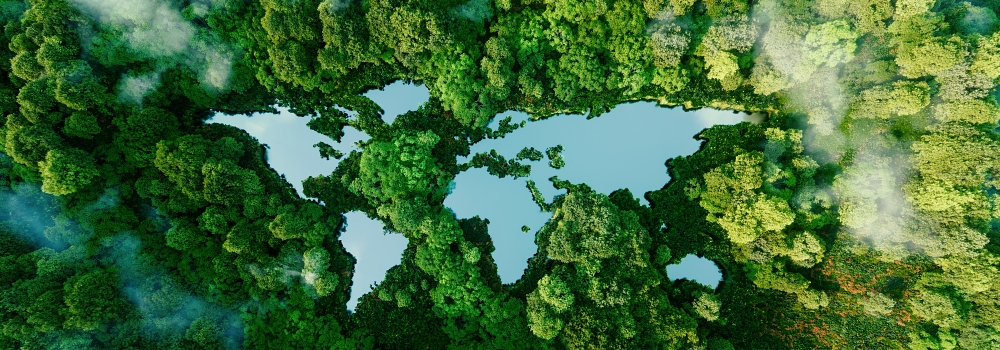One might say that we need a conversation between mind and heart, reason and feeling, clarity and courage. Our challenges are too great to use only part of our capacities to address them. Our gifts are too great to waste or ignore.
—Kathleen Dean Moore, Great Tide Rising: Towards Clarity and Moral Courage in a Time of Planetary Change

I don’t remember exactly when I first began to understand the realities of human-caused climate change. As a graduate student in the late 1990s and early 2000s, I was never required to read a book about the subject or enroll in a class on the topic, even given my focus on hazards and disasters. Perhaps that’s why the threat appeared so distant—temporally and geographically. It was an issue that seemed to apply to environmentally fragile places in other parts of the world, not one that would impact me directly in my lifetime.
Decades later, I’ve been disabused of those earlier notions. Nothing seems distant anymore as both the subtle and more extreme effects of climate change touch all our lives, including my own. On October 17, 2020, for example, my family was forced to flee the climate-fueled Calwood fire as spot fires ignited the parched mountainside directly behind our property. Fourteen months later, on December 30, 2021, we prepared to evacuate once again when the Left Hand Canyon fire broke out at the base of our neighborhood in northwest Boulder County. That same day, shortly before we were to welcome our first winter snowfall, we watched helplessly as the Marshall fire raged out of control and destroyed nearly 1,000 homes east of Boulder.
Climate change is here. Even though scientists have been ringing the alarm bells long and loudly, their warnings are all too often ignored, distorted, or denied. Risk is outrunning us as the impacts of climate-related and vulnerability-induced disasters severely alter our lives, especially those of the most economically and socially disadvantaged.
The state of our warming planet is dire. But the physical climate is not the only thing changing. So, too, is our social climate. We are at a pivotal moment in world history where the atmosphere is rapidly heating up as movements for social justice are converging around a common struggle for basic human rights during a time of great environmental change. It is this latter fact—that so many people are joining together to call for more equitable policies and sustainable social and economic systems—that gives me hope.
The duality of our changing physical and social climates is what drove the planning for this year’s 47th Annual Natural Hazards Research and Applications Workshop. This July, as we come together in the virtual space to engage with the theme of Changing Climates: Equity and Adaptation in a Warming World, we will address the current state of our science, practice, and policy as well as our future prospects with the hallmark smarts and heart that our participants always bring to bear.
This is a crucial time. The knowledge and expertise of our hazards and disaster community has a real chance to change the direction we’re heading. Global leaders recognize that we are running out of time to address the planetary changes already in motion—and they are looking for guidance on how we can engage in ambitious and fair climate action. Climate change is not simply a complex environmental problem in need of a technical fix. It, like other grand challenges, originates from unaddressed historical and contemporary social injustices that must be attended to ethically if we are to ensure that the benefits of climate mitigation and adaptation are distributed equitably.
To that point, the current U.S. presidential administration has openly acknowledged the role that racial inequality and other injustices have played in worsening climate-related disasters and the COVID-19 pandemic. Since the 1970s, our community members have asserted that these systemic vulnerabilities must be rooted out if we are to reduce disaster losses. This is a time when our scholarship and our experience in the field can help make sense of the enormous problems we face and light a new path forward.
We are living in a time of great upheaval and uncertainty. This also means that we have a chance to envision new possibilities, to act in new and different ways, and to build something better than what came before. The Workshop this summer will, as always, offer a careful assessment of where we are at while identifying opportunities for where we might go from here. There is hope and the promise of change, but there is much left to be done to make a difference in the most disaster-prone places of our nation and in the world.
On behalf of the entire Natural Hazards Center team, please know how excited we are to welcome you to this year’s Workshop. It is our honor to host this meeting and to have the privilege to learn from each of you. We look forward to seeing you in July.
Please take care of yourself and others.
Lori Peek, Director
Natural Hazards Center